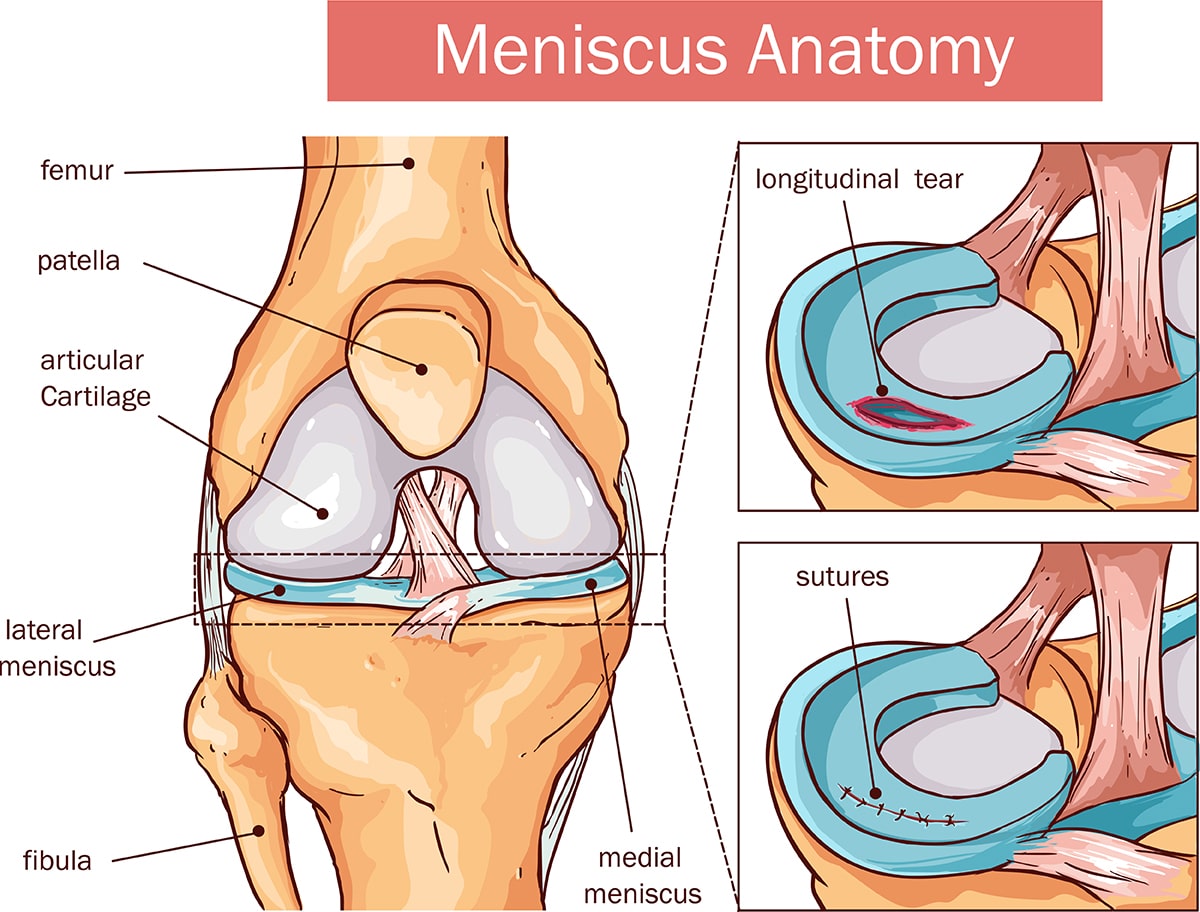

Finance
How Much Is Lasik Surgery Without Insurance?
Published: November 11, 2023
Discover the cost of Lasik surgery without insurance and explore financing options. Take control of your vision and your finances with affordable options for this life-changing procedure.
(Many of the links in this article redirect to a specific reviewed product. Your purchase of these products through affiliate links helps to generate commission for LiveWell, at no extra cost. Learn more)
Table of Contents
Introduction
Are you tired of wearing glasses or contact lenses? Do you dream of having clear vision without the hassle of corrective eyewear? If so, you may be considering Lasik surgery as a solution. Lasik, which stands for “Laser-Assisted in Situ Keratomileusis,” is a popular refractive eye surgery that can correct common vision problems, such as nearsightedness, farsightedness, and astigmatism.
While Lasik surgery offers numerous benefits, one common concern for many people is the cost. The price of Lasik surgery can vary depending on several factors, including your location, the reputation of the surgeon, and the technology used during the procedure.
In this article, we will explore the average cost of Lasik surgery without insurance and discuss the financial options available to make this life-changing procedure more affordable. We will also weigh the pros and cons of getting Lasik surgery without insurance coverage, helping you make an informed decision about whether it’s the right choice for you.
Factors Affecting the Cost of Lasik Surgery
The cost of Lasik surgery can vary significantly depending on several factors. Understanding these factors can help you determine why prices may differ and what to consider when evaluating different providers. Here are the key factors that can influence the cost of Lasik surgery:
- Geographic Location: The cost of Lasik surgery can vary by location. Procedures performed in major cities or metropolitan areas may be more expensive than in smaller towns or rural areas. This is due to differences in operating costs, rent, and other overhead expenses.
- Surgeon’s Experience and Reputation: The experience and reputation of the surgeon can impact the cost of Lasik surgery. Highly skilled and renowned surgeons may charge higher fees based on their expertise and success rates. It’s important to research and select a qualified surgeon who has a track record of successful procedures.
- Technological Advancements: Lasik surgery utilizes advanced technology to reshape the cornea and correct vision problems. The use of newer and more precise technologies, such as bladeless or all-laser Lasik, may result in higher costs compared to traditional Lasik procedures.
- Pre-operative Evaluations: Before undergoing Lasik surgery, you will typically need to undergo a series of pre-operative evaluations to assess your eye health and determine your eligibility for the procedure. These evaluations can include various tests and consultations, which may incur additional costs.
- Post-operative Care and Follow-up Visits: Following Lasik surgery, you will require post-operative care and follow-up visits to ensure proper healing and monitor the progress of your vision correction. These visits may be included in the overall cost of the procedure or may incur separate charges. It’s important to clarify this with your surgeon or eye clinic.
It’s worth noting that the cost of Lasik surgery is typically quoted per eye. This means that if you need surgery for both eyes, you will need to double the quoted price. Additionally, some clinics may offer package deals or discounts for bilateral surgeries.
Understanding these factors can help you compare quotes from different providers and make an informed decision about the cost of Lasik surgery that aligns with your budget and expectations.
Average Cost of Lasik Surgery Without Insurance
The cost of Lasik surgery without insurance can range from approximately $2,000 to $4,000 per eye. Keep in mind that this is an average estimate, and prices can vary depending on the factors mentioned earlier.
The cost of the procedure typically includes the surgeon’s fee, facility fees, and the use of advanced technology during the surgery. Additional costs, such as pre-operative evaluations and post-operative care, may be separate from the quoted price.
It’s important to note that the cost of Lasik surgery can be influenced by geographic location. For example, procedures performed in major cities or metropolitan areas may be at the higher end of the price range due to higher operating costs. On the other hand, Lasik surgery in smaller towns or rural areas may be more affordable.
When comparing prices, it’s essential to consider the reputation and experience of the surgeon. While it may be tempting to choose the lowest priced option, it’s crucial to prioritize quality and safety. Researching and selecting a highly skilled and trusted surgeon will increase the likelihood of a successful outcome.
It’s also worth exploring financing options to help manage the cost of Lasik surgery without insurance. Many eye clinics offer flexible payment plans or financing options to make the procedure more affordable. These options allow you to spread out the cost over time, making it more manageable on your budget.
Remember to inquire about any additional fees or potential hidden costs during your consultations. Transparency is crucial, and a reputable eye clinic will provide you with a breakdown of the total cost and any potential additional expenses.
Ultimately, the cost of Lasik surgery without insurance is an investment in your long-term vision and quality of life. It’s important to weigh the cost against the potential benefits and consider the impact it will have on your daily life and overall well-being.
Financing Options for Lasik Surgery
Lasik surgery is a significant investment in your vision, but it doesn’t have to be a financial burden. Many eye clinics offer financing options to help you manage the cost of the procedure. Here are some common financing options to consider:
- In-House Financing: Some eye clinics offer in-house financing plans that allow you to pay for your Lasik surgery over time. These plans often come with low or zero-interest rates and can be a convenient option for those who prefer to work directly with the clinic.
- Credit Cards: Many individuals choose to use their credit cards to cover the cost of Lasik surgery. Depending on your credit card terms, you may have the option to pay off the balance interest-free within a specified promotional period.
- Healthcare Credit Cards: Healthcare-specific credit cards, such as CareCredit, are designed to cover medical expenses, including elective procedures like Lasik surgery. These cards often offer special financing options with low or zero-interest rates for a certain period of time.
- Personal Loans: Personal loans from banks or online lenders can be used to finance Lasik surgery. These loans typically have fixed interest rates and set repayment terms, allowing you to budget for the cost of the procedure over time.
- Flexible Spending Accounts (FSAs) and Health Savings Accounts (HSAs): If your employer offers an FSA or if you have an HSA, you may be able to use these accounts to pay for Lasik surgery. Contributions to these accounts are tax-exempt, so using them to cover the cost of the procedure can provide significant savings.
When considering financing options, be sure to read and understand the terms and conditions, including interest rates, repayment schedules, and any potential penalties for late payments. It’s also important to evaluate your financial situation and choose an option that aligns with your budget and long-term goals.
Before making a decision, consult with the eye clinic and financing institutions to gather all the necessary information and clarify any concerns or questions you may have. This will ensure you have a clear understanding of the financing options available to you and can make an informed decision.
Remember, while financing can make Lasik surgery more accessible, it’s essential to prioritize your eye health and choose a reputable and skilled surgeon for the best possible outcome.
Pros and Cons of Getting Lasik Surgery Without Insurance
Getting Lasik surgery without insurance coverage comes with both advantages and disadvantages. It’s important to consider these factors when deciding whether to proceed with the procedure. Here are some pros and cons to help you make an informed decision:
Pros:
- Freedom from Dependence on Corrective Eyewear: One of the most significant advantages of Lasik surgery is the potential to achieve clear vision without the need for glasses or contact lenses. This can provide you with a newfound freedom in your daily life, allowing you to participate in activities without the constraints of corrective eyewear.
- Long-term Cost Savings: While the upfront cost of Lasik surgery may seem substantial, it can lead to long-term cost savings. Over time, the expense of purchasing and maintaining prescription eyeglasses or contact lenses can add up. By investing in Lasik surgery, you can potentially eliminate or significantly reduce these ongoing costs.
- Improved Quality of Life: Clear vision has a profound impact on daily life, from increased confidence to enhanced performance in various activities. Lasik surgery can improve your overall quality of life, allowing you to experience the world with improved vision and clarity.
- Immediate Results: Unlike other vision correction methods, such as orthokeratology or progressive lenses, Lasik surgery provides almost immediate results. Many individuals experience improved vision within hours or a few days after the procedure, allowing them to enjoy the benefits of clearer vision sooner.
Cons:
- Initial Cost: The cost of Lasik surgery without insurance can be a significant financial investment. It’s crucial to carefully evaluate your budget and savings to determine whether you can comfortably afford the procedure without insurance coverage.
- No Insurance Coverage for Potential Complications: Without insurance coverage, you will be responsible for any potential complications that may arise during or after the surgery. While the risk of complications is relatively low, it’s essential to consider this as a potential drawback and be prepared for any unexpected expenses that may arise.
- Varied Pricing and Affordability: The cost of Lasik surgery can vary depending on several factors, making it challenging to find affordable options that meet your specific needs. It’s crucial to research and compare quotes from different providers to find the best balance between quality, reputation, and affordability.
- Not Suitable for Everyone: Lasik surgery is not suitable for everyone, and not everyone is a candidate due to various factors such as age, eye health, and certain medical conditions. It’s important to undergo a comprehensive evaluation with a qualified surgeon to determine your eligibility for the procedure.
Ultimately, the decision to get Lasik surgery without insurance should be based on careful consideration of these pros and cons, as well as a thorough understanding of your individual circumstances and preferences. Consultation with a trusted eye care professional can provide personalized advice and help you make an informed choice.
Conclusion
Lasik surgery offers a life-changing opportunity to achieve clear vision without the need for glasses or contact lenses. However, the cost of the procedure can be a significant factor to consider. Understanding the average cost of Lasik surgery without insurance and exploring financing options can help make the procedure more accessible. It’s essential to evaluate the pros and cons of getting Lasik surgery without insurance coverage to make an informed decision.
On the positive side, Lasik surgery provides freedom from dependence on corrective eyewear, the potential for long-term cost savings, improved quality of life, and immediate results. However, it’s important to keep in mind the initial cost, potential lack of insurance coverage for complications, varied pricing and affordability, and the fact that Lasik surgery may not be suitable for everyone.
Before proceeding with Lasik surgery, it is crucial to consult with a reputable eye clinic and qualified surgeon. Gather as much information as possible, including cost breakdowns, financing options, and any potential risks or limitations specific to your situation. This will ensure that you make an informed decision that aligns with both your budget and your vision goals.
Remember, the cost of Lasik surgery is an investment in your long-term vision and quality of life. While it may require upfront financial planning, the potential benefits and increased quality of life can make it a worthwhile investment.
Ultimately, whether or not to get Lasik surgery without insurance coverage is a personal decision. Carefully weigh the benefits, risks, and costs involved to determine if the long-term benefits of clearer vision outweigh the financial considerations. Consult with a knowledgeable eye care professional who can guide you through the process and provide personalized advice.
By considering all these factors, you can make an informed decision about whether Lasik surgery without insurance is the right choice for you and take the necessary steps towards achieving clearer, sharper vision.














